Related Research Articles

In art history, literature and cultural studies, orientalism is the imitation or depiction of aspects of the Eastern world by writers, designers, and artists from the Western world. Orientalist painting, particularly of the Middle East, was one of the many specialties of 19th-century academic art, and Western literature was influenced by a similar interest in Oriental themes.
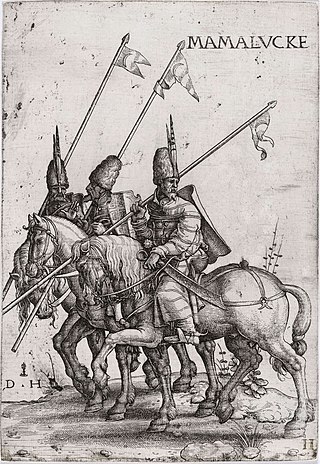
Mamluk or Mamaluk were non-Arab, ethnically diverse enslaved mercenaries, slave-soldiers, and freed slaves who were assigned high-ranking military and administrative duties, serving the ruling Arab and Ottoman dynasties in the Muslim world.

Bernard Lewis, was a British American historian specialized in Oriental studies. He was also known as a public intellectual and political commentator. Lewis was the Cleveland E. Dodge Professor Emeritus of Near Eastern Studies at Princeton University. Lewis's expertise was in the history of Islam and the interaction between Islam and the West.

The Battle of Ain Jalut, also spelled Ayn Jalut, was fought between the Bahri Mamluks of Egypt and the Mongol Empire on 3 September 1260 near the spring of Ain Jalut in southeastern Galilee in the Jezreel Valley.
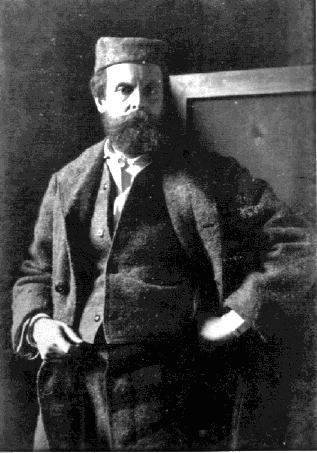
Wilfrid Scawen Blunt, sometimes spelt Wilfred, was an English poet and writer. He and his wife Lady Anne Blunt travelled in the Middle East and were instrumental in preserving the Arabian horse bloodlines through their farm, the Crabbet Arabian Stud. He was best known for his poetry, which appeared in a collected edition in 1914, and also wrote political essays and polemics. He became additionally known for strongly anti-imperialist views that were still uncommon in his time.

Sir William Muir was a Scottish Orientalist, and colonial administrator, Principal of the University of Edinburgh and Lieutenant Governor of the North-West Provinces of British India.
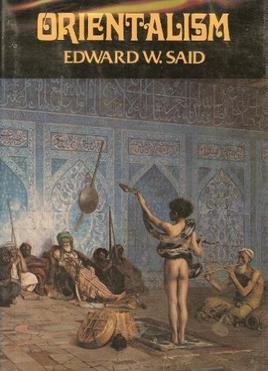
Orientalism is a 1978 book by Edward W. Said, in which the author establishes the term "Orientalism" as a critical concept to describe the West's commonly contemptuous depiction and portrayal of The East, i.e. the Orient. Societies and peoples of the Orient are those who inhabit the places of Asia, North Africa, and the Middle East. Said argues that Orientalism, in the sense of the Western scholarship about the Eastern World, is inextricably tied to the imperialist societies who produced it, which makes much Orientalist work inherently political and servile to power.

Qutb ad-Dīn Haydar was a Persian Sufi saint and Malāmatī-Qalāndārī Sheikh, of possible Turkic origin, and is buried in Zava, Khurasan. Qazvini, author of the Tarikh-i guzida, states Haydar was alive at the time of the Mongol invasion of Central Asia in 1220 and died in 1221 CE/618 AH. The date of his life helpfully indicates the time when the use of cannabis took hold in Islamic society.

Oriental studies is the academic field that studies Near Eastern and Far Eastern societies and cultures, languages, peoples, history and archaeology. In recent years, the subject has often been turned into the newer terms of Middle Eastern studies and Asian studies. Traditional Oriental studies in Europe is today generally focused on the discipline of Islamic studies; the study of China, especially traditional China, is often called Sinology. The study of East Asia in general, especially in the United States, is often called East Asian studies.
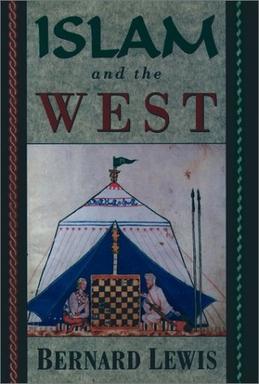
Islam and the West is a 1993 book written by Middle-East historian and scholar Bernard Lewis.
Hugh Nigel Kennedy is a British medievalist and academic. He specialises in the history of the early Islamic Middle East, Muslim Iberia and the Crusades. From 1997 to 2007, he was Professor of Middle Eastern History at the University of St Andrews. Since 2007, he has been Professor of Arabic at SOAS, University of London.

Al-Malik al-Zahir Rukn al-Din Baybars al-Bunduqdari, commonly known as Baibars or Baybars and nicknamed Abu al-Futuh, was the fourth Mamluk sultan of Egypt and Syria, of Turkic Kipchak origin, in the Bahri dynasty, succeeding Qutuz. He was one of the commanders of the Egyptian forces that inflicted a defeat on the Seventh Crusade of King Louis IX of France. He also led the vanguard of the Egyptian army at the Battle of Ain Jalut in 1260, which marked the first substantial defeat of the Mongol army and is considered a turning point in history.
Dedalus Books is an independent publishing company based in Cambridgeshire, England. Publisher Eric Lane has said, "We like the bizarre, the grotesque, the surreal and the clever, preferably in the same book. We call this kind of book, distorted reality. For instance David Madsen’s Memoirs of a Gnostic Dwarf, Sylvie Germain’s The Book of Night and Vladimir Sharov’s Before and During. Three perfect examples of what we are looking for." Prize-winning Dedalus writers have included novelist Andrew Crumey and translator Margaret Jull Costa.
In contrast to the views of Muhammad in Islam, the Christian views on him stayed highly negative during the Middle Ages for over a millennium. At this time, Christendom largely viewed Islam as a Christian heresy and Muhammad as a false prophet.

Sunni Islam is a major religion in Palestine, being the religion of the majority of the Palestinian population. Muslims comprise 85% of the population of the West Bank, when including Israeli settlers, and 99% of the population of the Gaza Strip. The largest denomination among Palestinian Muslims are Sunnis, comprising 98–99% of the total Muslim population.
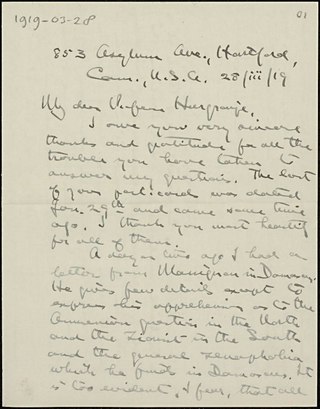
Duncan Black MacDonald (1863-1943) was an American Orientalist, who was a "pioneer of Arabic and Islamic studies in the United States". He was praised by Hamza Yusuf as a "great Islamic scholar".

Edward Wadie Said was a Palestinian-American philosopher, academic, literary critic, and political activist. As a professor of literature at Columbia University, he was among the founders of post-colonial studies. As a cultural critic, Said is best known for his book Orientalism (1978), a foundational text which critiques the cultural representations that are the bases of Orientalism—how the Western world perceives the Orient. His model of textual analysis transformed the academic discourse of researchers in literary theory, literary criticism, and Middle Eastern studies.
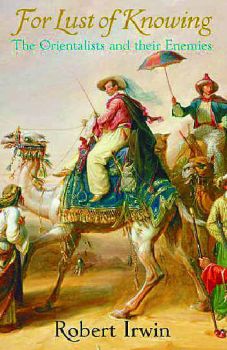
For Lust of Knowing: The Orientalists and their Enemies, published in the United States under the title Dangerous Knowledge: Orientalism and Its Discontents, is a 2006 non-fiction book by British historian Robert Irwin. The book is both a history of the academic discipline of Orientalism and an attack on Edward Said's 1978 book Orientalism, which he calls "malignant charlatanry, in which it is hard to distinguish honest mistakes from willful misrepresentations." The title of the British version of the book comes from the poem "The Golden Journey to Samarkand" by James Elroy Flecker.

Al-Muzaffar Sayf ad-Din Hajji ibn Muhammad ibn Qalawun, better known as al-Muzaffar Hajji, was the Bahri Mamluk sultan of Egypt. He was also the sixth son of an-Nasir Muhammad to hold office, ruling from September 1346 and December 1347. He was known for his love of sports and pigeon racing, acts which led to frustration among the senior Mamluk emirs who believed he neglected the duties of office and spent extravagant sums on gambling. His reign ended when he was killed in a confrontation with Mamluk conspirators outside of Cairo.
The Arabian Nightmare is a novel by Robert Irwin published in 1983. The Arabian Nightmare was inspired by The Arabian Nights, as well as the novel The Manuscript Found in Saragossa by Jan Potocki.
References
- ↑ Stableford, Brian (2009), "Robert Irwin", Against the New Gods and Other Essays on Writers of Imaginative Fiction, The Borgo Press, p. 138.
- 1 2 3 "Robert Irwin Interview". Resources for Studying the Crusades. Queen Mary, University of London.
- ↑ Jelbert, Steve (17 April 2011). "Memoirs of a Dervish, By Robert Irwin". The Independent . Retrieved 6 July 2015.
- ↑ Favorov, Pyotr (6 July 2015). ""Я плохой мусульманин": интервью автора "Арабского кошмара" Роберта Ирвина" (in Russian). Afisha . Retrieved 6 July 2015.
- ↑ "Mr Robert Irwin". Department of History: Departmental Staff. SOAS, University of London.
- ↑ Jakeman, Jane (10 April 1999). "The Books Interview: Robert Irwin - No sympathy for the devil". The Independent .
- ↑ The 2002 reprint of The Arabian Nightmare carries praise from the Washington Post, the Sunday Times and The Guardian .
- ↑ Stableford, Brian, "Irwin, Robert (Graham)" in St. James Guide To Fantasy Writers, edited by David Pringle. St. James Press, 1996, p. 301–3.
- ↑ Nevins, Jess. "Annotations to "League of Extraordinary Gentlemen" Volume III Chapter Two, a.k.a. Century: 1969".
- ↑ Moore, Alan (14 July 2011). "A couple of extraordinary gentlemen chat: Padraig talks to Alan Moore about the new LOEG Century". Forbidden Planet International.
- ↑ Grimes, William (1 November 2006). "The West Studies the East, and Trouble Follows". The New York Times .
- ↑ Irwin, Robert (23 January 2008). "Islamic science and the long siesta: Did scientific progress in the Islamic world really grind to a halt after the twelfth century? (A review of Muzaffar Iqbal's SCIENCE AND ISLAM)". The Times. Archived from the original on 17 May 2011.
- ↑ Jasanoff, Maya (8 June 2006). "Before and After Said". London Review of Books . 28 (11).
- 1 2 3 Flemming Rose: Forsvar for en profession [Defence of a profession], interview with Prof. Robert Irwin, Jyllands-Posten , 12 April 2008, section 1, p. 17 (accessed via Infomedia.dk).